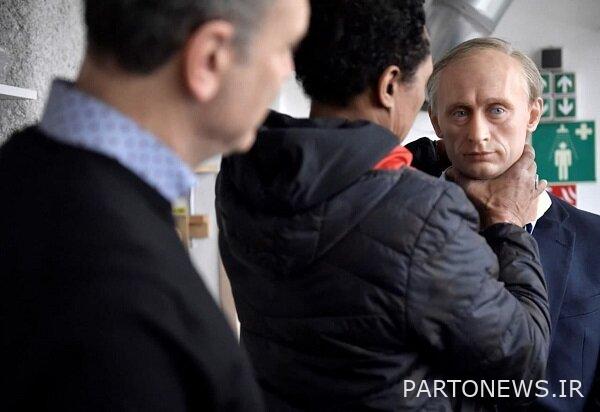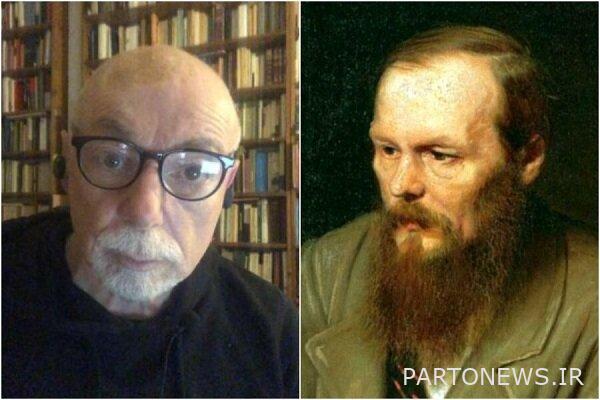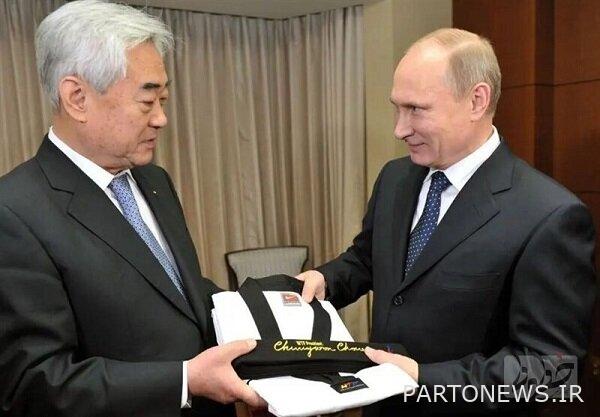NATO Strategy, Avoidance of Military War and Intensification of Comprehensive Cultural War – Mehr News Agency | Iran and world’s news

Mehr news agency, Culture and Thought Group_ Fatemeh Torkashvand: Although the United States and its NATO allies left Ukraine alone on the hard front, they have put pressure on Russia in the field of soft warfare and all areas of culture and art as much as possible. The removal of Putin’s statue from the Grone Museum in France, the expulsion of the Russian conductor from the Munich Orchestra, the ban on Dostoevsky’s teaching at the University of Milan, the removal of two films from the Glasgow Film Festival, the ban on Russians entering Cannes, the World Chess Federation Putin’s Honorary Taekwondo Award from the World Taekwondo Federation is one of the measures taken by European NATO member states to increase pressure on Russia.
The Russia-Ukraine war is the most complete example of 21st century warfare that reveals Western strategies in contemporary warfare.
NATO, on the one hand, encouraged Russia to enter a fruitless war on Ukrainian territory by advancing on Russia’s neighbors and seceding from the Soviet Union, and on the other hand, avoided entering directly into military war on Ukrainian soil.
Now, however, key NATO members are seeking to defuse increasing pressure on Russia in controversial and newsworthy moves to use cultural means to force Putin to back down on what he calls his country’s national security.
An orchestra for the warlords
Over the past two days, the Western media has openly or implicitly welcomed the pressure on musicians close to the Putin government with a defensive stance. Exeter conductor Valerie Gergiev, who was previously the conductor of the Munich Philharmonic Orchestra, has been questioned by the music institute for his acquittal of Putin.
In 1996, Gergiev received the “Russian People’s Artist” award from Putin. Although he has other international insignia in his collection, such as the French Donor Legion, he is now under pressure to express his innocence from his homeland.
The same fate befell Russian opera singer Anna Netrebko. He was honored by Putin in 2008 with the Order of the People’s Artist of Russia. The soprano singer’s reputation is such that she has performed from the Vienna Opera to the Royal Opera House in London, but now she has to answer to European countries for opposing the country’s attack on Ukraine.
But the New York Times reported that the two prominent artists were being pressured: “Valery Gergiev and Anna Neterbeko have lost their ability to work because of their relationship with Putin because geopolitics and music have reunited.”
Recognition of the natural connection of art with political issues has been a topic that has been denied by the Western media for decades, and objections to this dual standard have now been criticized by social media users in Western institutions.
“How quickly the mask of liberal democracy falls with a security threat,” Shahab Esfandiari, president of the Radio and Television University, wrote on Twitter after listing some cases of cultural war with Russia. In fact, the security threat close to European territory has pushed them away from their seemingly cultural positions in defense of art without flaws and political interference.
A museum for displaying belligerence
Cultural and artistic actions against Russia have directly targeted President Vladimir Putin himself, and from museums and cultural institutions to sports and social centers have intensified his newsworthy actions against his global reputation.
The Grone Museum in Paris, the capital of France, houses statues of more than 200 world-renowned historians, from Gandhi and Einstein to Pope Francis and Cristiano Ronaldo. The museum’s director, Yew Delmamo, announced last week that he had stopped displaying a statue of Vladimir Putin on Tuesday, March 1st. A video of the wax statue being severed from its body has gone viral on social media around the world.
Commenting on the political aspects of this action, the director of the museum stated: “Given the current situation and the fact that we did not want to pass in front of such a figure every morning, make him up and make him look beautiful, we finally decided to remove him. We got it from the museum. “This is the first time in the history of the Green Museum that a statue of a figure associated with history has been collected.”
University or battlefield with Russian writers?
The crackdown on Russia extends to the university, which appears to be an institution completely independent and unaffected by politics. Bicocca University is the most important Italian university in the city of Milan, which two days ago its guest professor of literature announced on his Instagram that the university officials have banned him from teaching in Dostoevsky’s chair.
Italian author Paolo Nouri released a video of an email from the university announcing that he had postponed a four-session lecture on Dostoevsky’s four great novels, including Crime and Punishment, The Stupid, The Demons, and The Karamazov Brothers. “I understand what is happening in Ukraine is scary, but what is happening in Italy is ridiculous and shameful,” he said in surprise.
Following the release of the video, following a wave of global protests against the move, Bikoka University backtracked on its previous decision on Wednesday, saying that Dostoevsky’s teaching course would be held as scheduled. “Dostoevsky was sent to Siberian labor camps to read books banned by the tsarist government,” Italian journalist Alexandra Buchi wrote on Twitter, taunting the embarrassing act. “We are reaching an unprecedented level of hatred and stupidity that I never thought was possible.”

The film industry is a victim of Russia’s hard war and NATO soft war
In addition to Russian cultural and political figures, even the Russian film industry, as a popular part of culture, has been targeted in new EU actions. The Cannes Film Festival announced two days ago that it would not allow Russian films to enter the festival and would boycott Russian state cinema.
According to The Independent, which, like other Western media outlets, has a mixed tone of defense and admiration for these countercultural acts, it reflects the Cannes Film Festival’s statement: “It always serves artists and film industry professionals who, with the main goal of defending peace and freedom, raise their voices to condemn violence, repression and injustice.” The statement added that the sanctions would continue until Russia’s invasion of Ukraine ended in a way that was satisfactory to the Ukrainian people.
Other international film and video festivals have supported the sanctions against Russian cinema and film industry, which will lead to discontent within the government and the rise of its internal institutions against the government’s decision.
Walt Disney announced on Monday that it would suspend the release of its films in Russia. Later, Warner Bros. announced that “Batman” would not be released in Russia this week. A spokesman for Sony’s film company said in a statement: “We will stop our scheduled screenings in Russia due to the ongoing military action in Ukraine.” The Stockholm and Glasgow Film Festivals also announced in separate announcements that they would not accept films related to the Russian government. The global MIPTV market also condemned Russia’s military invasion of Ukraine. This means that Russia will not be present in the Cannes TV market either.
A sport that was not supposed to be tainted with politics
The world federations of some sports have also tried to bring the market of this internal confrontation in Russia to the field of sports. Until now, however, the discourse of liberalism and its developmental drives has argued that politics, like culture and art, should avoid contamination with politics.
But the World Taekwondo Federation took a direct stand against Putin, in a similar move to the Grun Museum, to delegitimize Putin’s reputation as a world leader, reclaiming his honorary black belt in Dan 9, which was awarded to Vladimir Putin in November 2013. The federation also announced it would join the International Olympic Committee in banning Russian flags and anthems at events in the field.
The World Chess Federation also restricted Russian and Belarusian players from participating in official tournaments. The 44th World Olympiad, one of the most important and largest team competitions in chess, will not be held in Russia. The tournament, in which teams from 190 countries compete for two weeks, was scheduled to take place in Moscow from July 26 to August 8.
But the World Chess Federation said in a statement last Tuesday that Russia and Belarus had been banned from hosting all official chess tournaments and events. Also, Russian and Belarusian players will not be allowed to display the national flag at official events and play their national anthem.

Will soft war be more effective than hard war?
The dual cultural standards of treatment of European governments, especially countries such as France, which have always sought to present an indifferent image of politics in the field of culture and art, are being criticized more than ever by public opinion around the world. These outspoken sanctions, especially in the field of culture and art, have now, more than ever, opened the eyes of the people of the world to the truth, and a look at social media shows that the strategy of Western governments is to use art and sport in politics. It is revealed in advance and the slogan of their previous claims fades.
However, it remains to be seen to what extent these sanctions will increase the dissatisfaction of cultural and artistic institutions and personalities against entering the war inside Russia, and whether these dissatisfaction will lead to an effective withdrawal of Putin from the war with Ukraine. But the United States and European governments seem to be hoping that these measures will be more effective than directly engaging in military warfare. Such an event could make more visible the change in the face of contemporary wars from hard to soft, which would remind us of the need to develop public awareness and increase the power of cultural defense.

